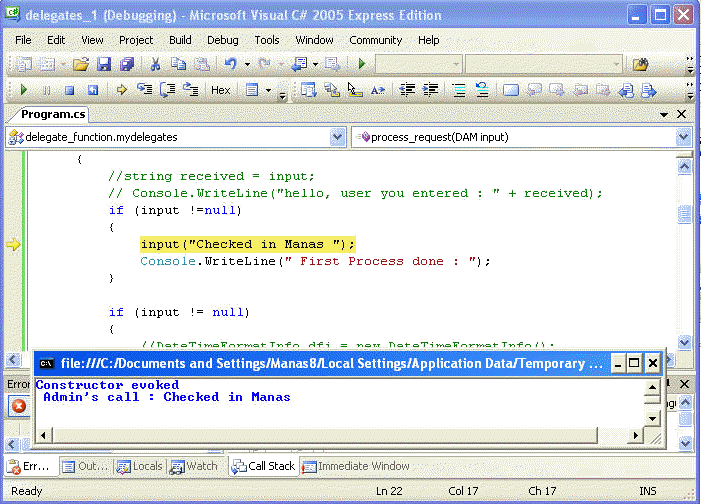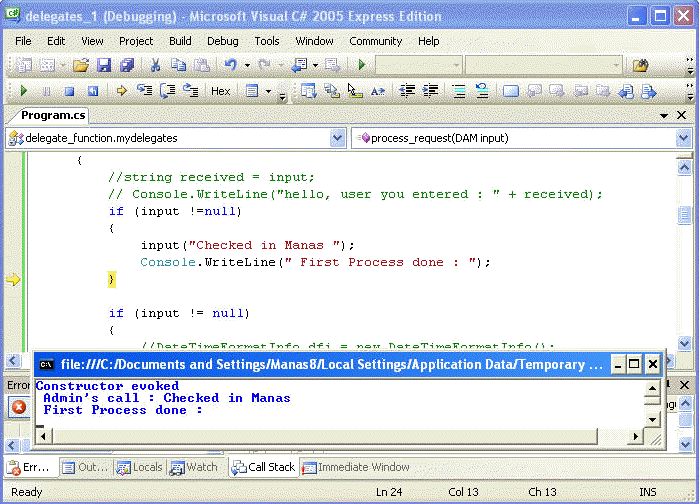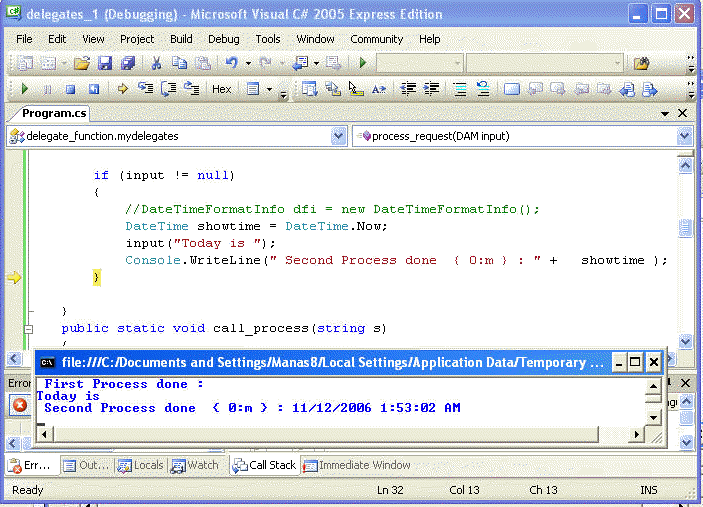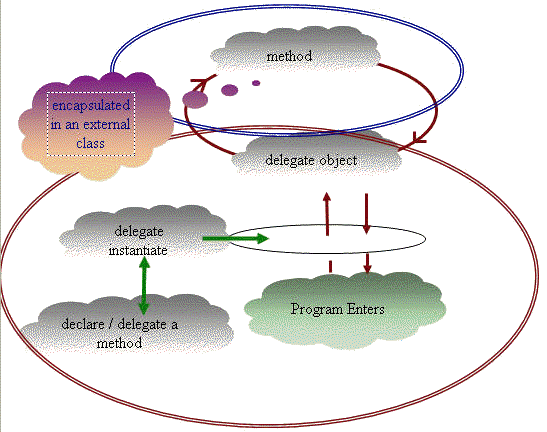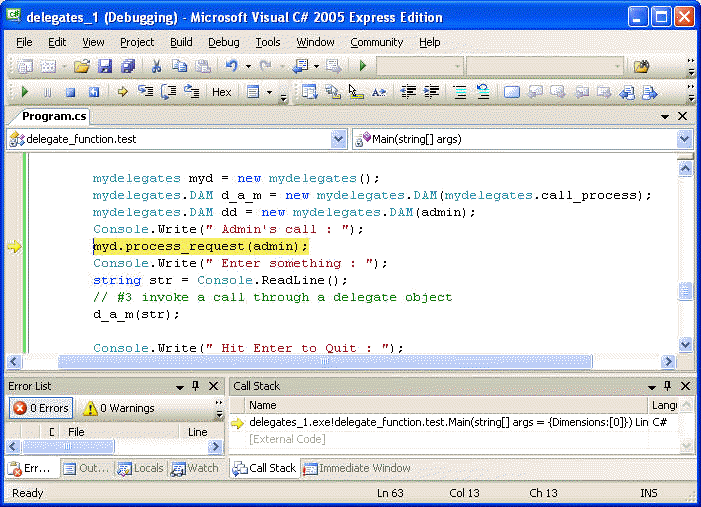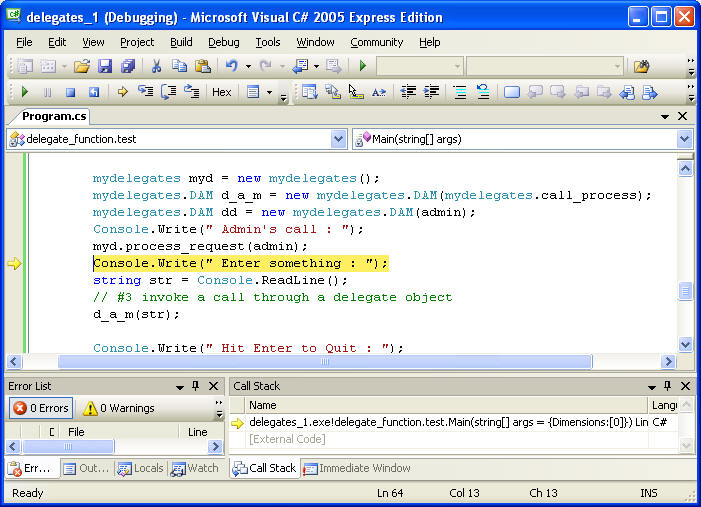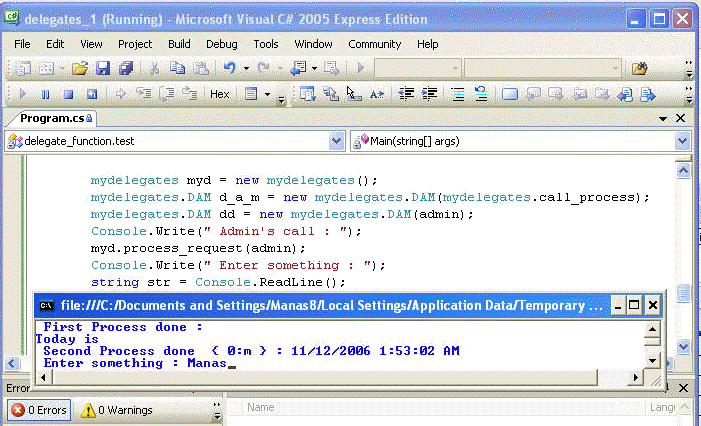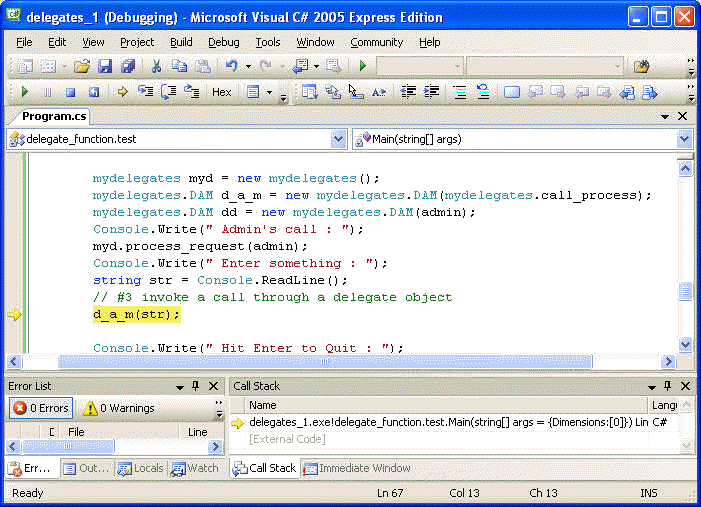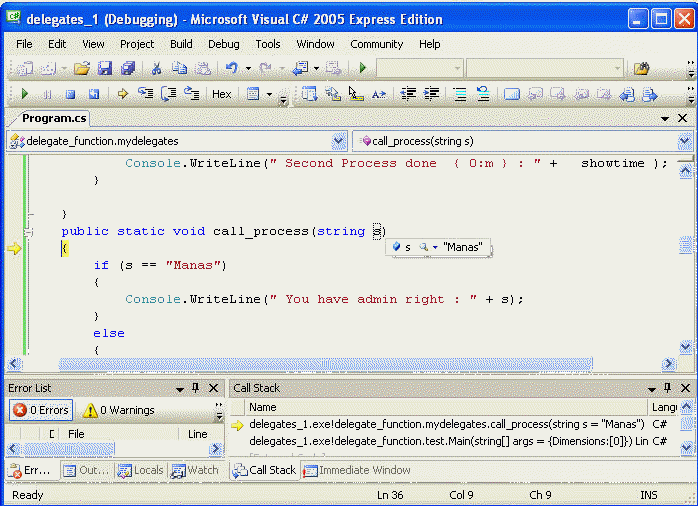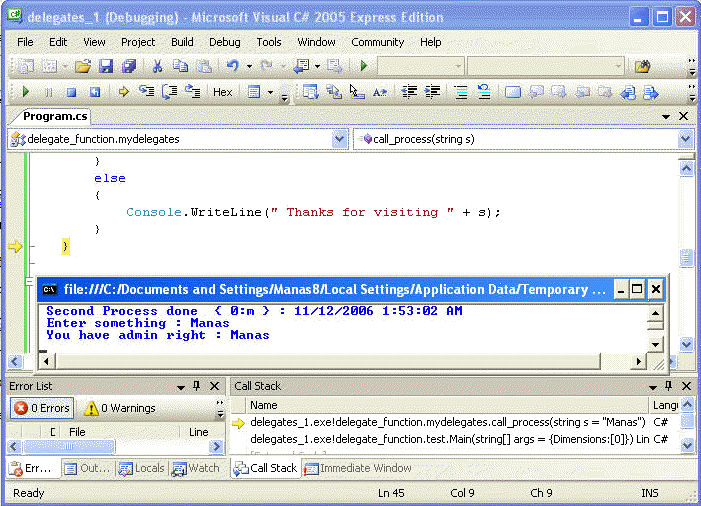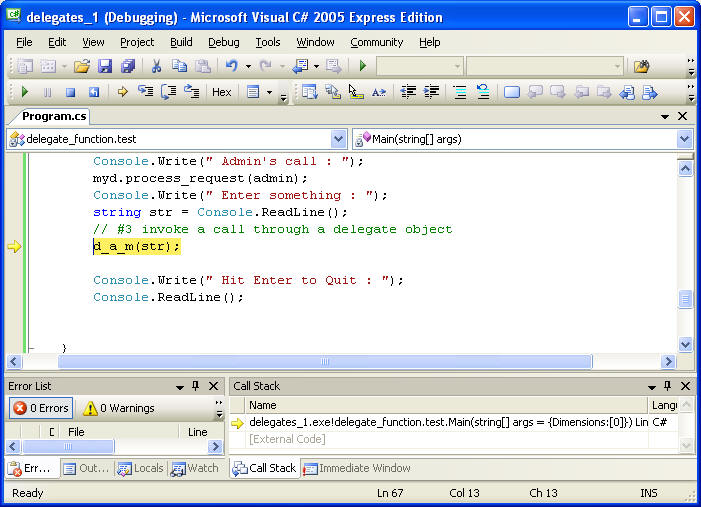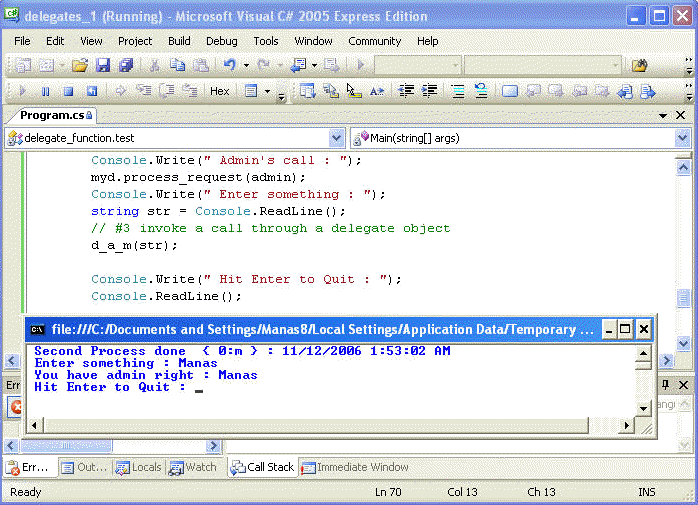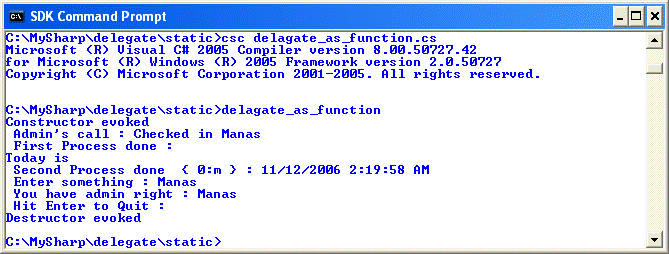using System;
using System.Collections.Generic;
using System.Text;
namespace delegate_function
{
class mydelegates
{
public delegate void DAM(string str);
// delegates first or constructor first
// for the class constructor will be the first one to evoked
public mydelegates() { Console.WriteLine("Constructor evoked"); }
~mydelegates() { Console.WriteLine("Destructor evoked"); }
//create a method with delegate
public void process_request(DAM input)
{
if (input !=null)
{
input("Checked in Manas ");
Console.WriteLine(" First Process done : ");
}
if (input != null)
{
DateTime showtime = DateTime.Now;
input("Today is ");
Console.WriteLine(" Second Process done { 0:m } : " + showtime );
}
}
public static void call_process(string s)
{
if (s == "Manas")
{
Console.WriteLine(" You have admin right : " + s);
}
else
{
Console.WriteLine(" Thanks for visiting " + s);
}
}
}
class test
{
static void admin(string ns) { Console.WriteLine(ns); }
static void Main(string[] args)
{
// #2 implement a delegate with new key word just line a class
//what is different?
//a class holds a delegate/pointer to a method encapsulated
//stay idle till called by a method in that external class.
//since it is static method, you need to call like this
//(mydelegates.call_process);
mydelegates myd = new mydelegates();
mydelegates.DAM d_a_m = new mydelegates.DAM(mydelegates.call_process);
mydelegates.DAM dd = new mydelegates.DAM(admin);
Console.Write(" Admin's call : ");
myd.process_request(admin);
Console.Write(" Enter something : ");
string str = Console.ReadLine();
// #3 invoke a call through a delegate object
d_a_m(str);
Console.Write(" Hit Enter to Quit : ");
Console.ReadLine();
}
}
}
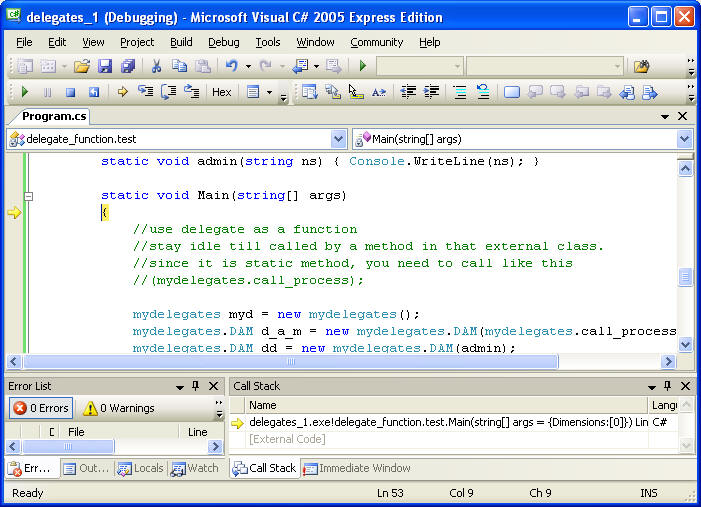
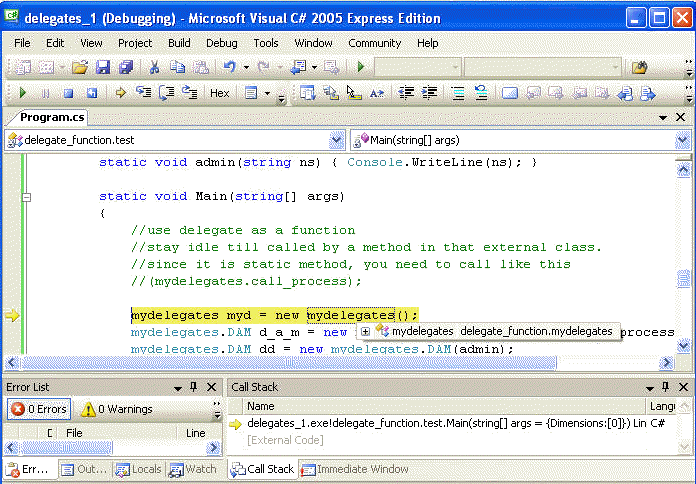
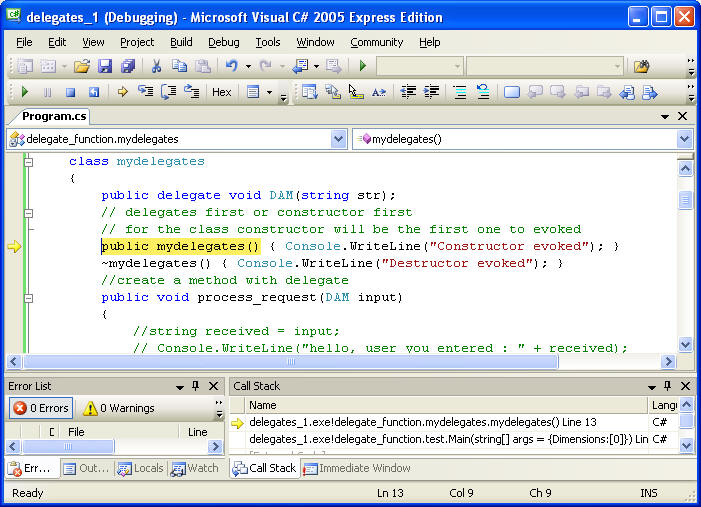

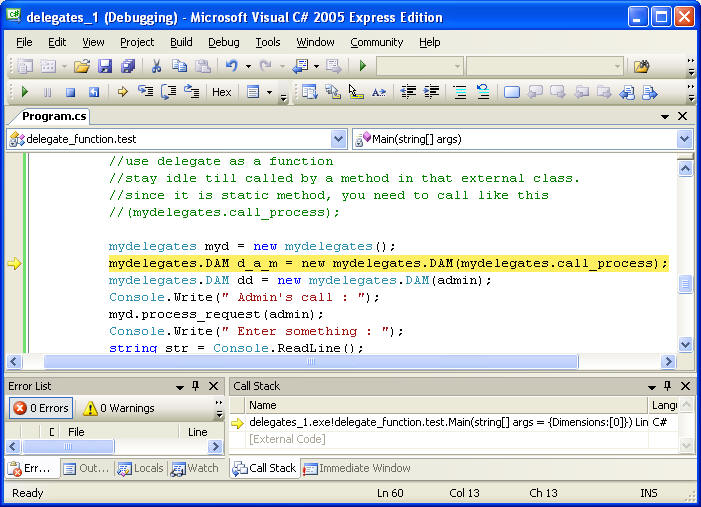
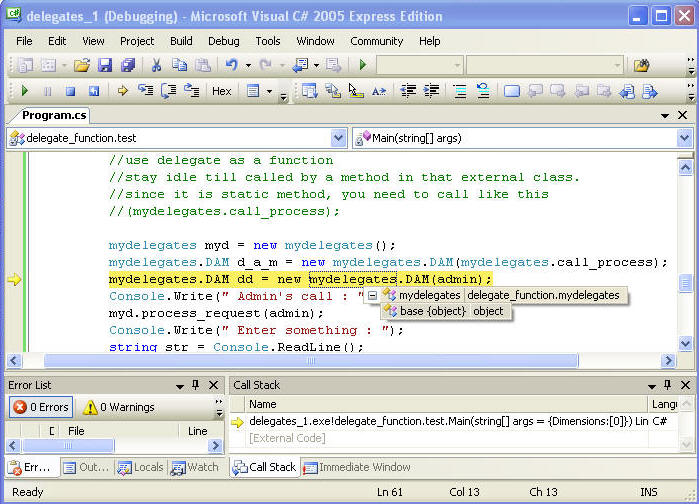
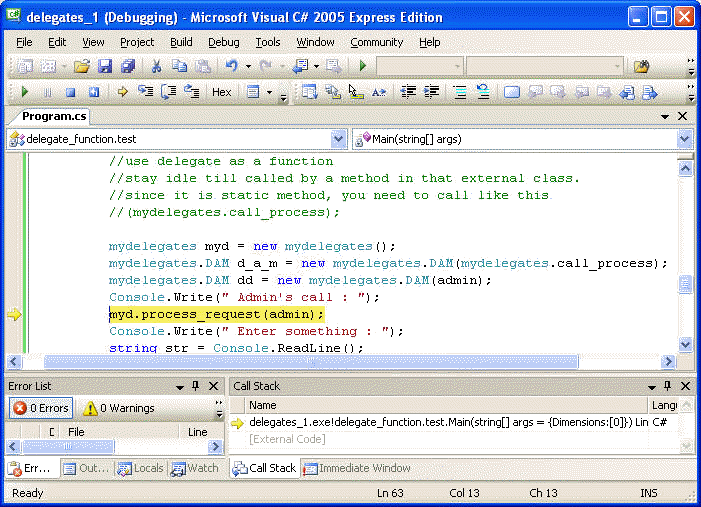
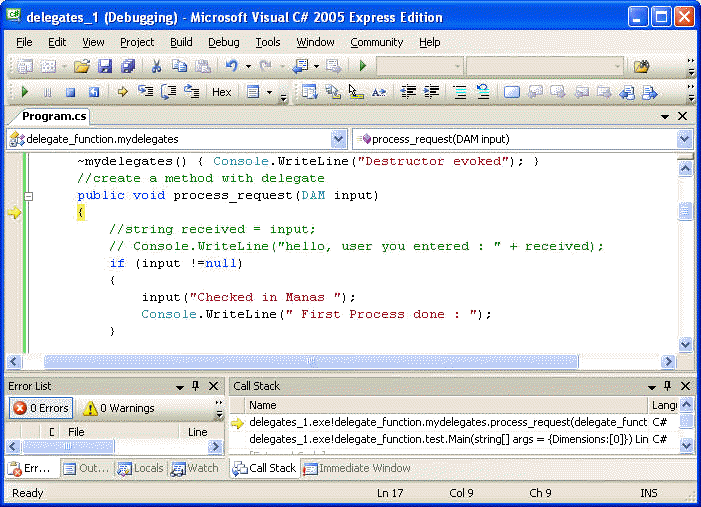
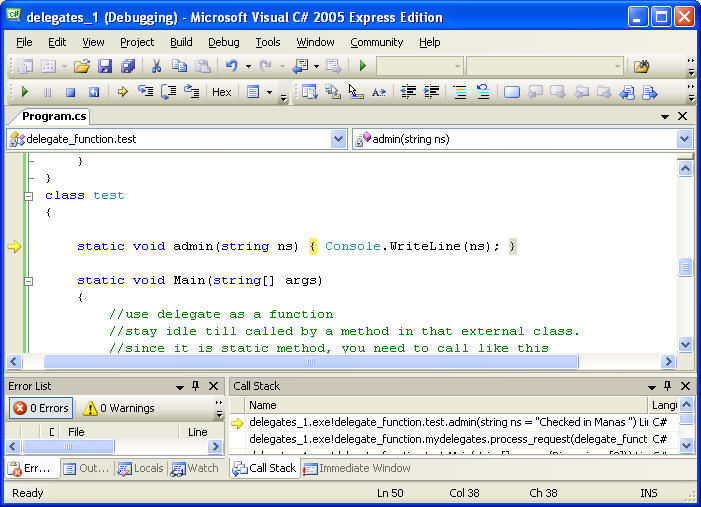
Now as the line was processed, you would see the out put
